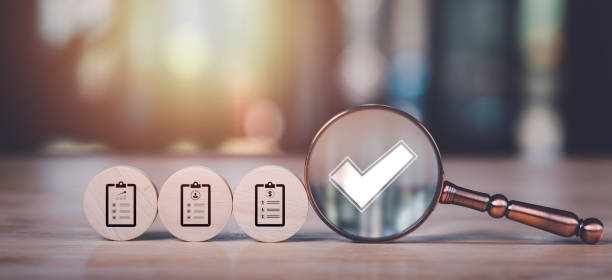Address Verification and Video KYC: Building Trust and Compliance in Digital Onboarding

When combined, these processes ensure that businesses not only confirm who their customers are but also where they live, while providing a seamless and secure digital onboarding experience.
What is Address Verification?
Address verification is the process of confirming the accuracy and authenticity of a customer’s residential or business address. It is a mandatory component of KYC and AML compliance across financial and regulated industries.
Common Address Verification Methods:
- Document Verification – Checking utility bills, bank statements, or government-issued IDs.
- Database Cross-Checks – Comparing addresses against trusted postal and government records.
- Geolocation and IP Checks – Verifying location via device IP or GPS coordinates.
- Postal Verification – Sending physical verification codes to confirm residential addresses.
Address verification reduces the risk of identity fraud, ensures regulatory compliance, and helps businesses establish customer credibility.
What is Video KYC?
Video KYC is a digital onboarding process where a customer’s identity is verified remotely through a secure video interaction. Instead of visiting a branch physically, customers can complete KYC requirements online within minutes.
Typical Video KYC Process:
- Live Video Call – Customer connects with a compliance officer or automated system.
- Document Verification – The customer shows a government-issued ID for validation.
- Face Matching – AI compares the customer’s live face with the photo on their ID.
- Liveness Detection – Ensures the user is physically present and not using deepfakes or images.
- Consent Recording – Customer consent is captured during the call for compliance purposes.
Video KYC is widely used by banks, fintechs, and digital service providers to streamline onboarding while ensuring strong compliance.
Why Address Verification and Video KYC Work Together
Individually, both processes are powerful, but together they form a complete identity verification framework.
- Address Verification confirms where the customer lives or operates.
- Video KYC confirms who the customer is in real time.
For example:
- A fintech startup must verify a customer’s age and address before opening an account. Video KYC ensures live identity confirmation, while address verification ensures the customer resides at a valid location.
- An e-commerce platform selling age-restricted products needs both checks to confirm eligibility and ensure safe deliveries.
By combining these methods, businesses achieve higher compliance, reduce fraud, and strengthen customer trust.
Benefits of Address Verification and Video KYC
1. Stronger Compliance with Regulations
Global regulations like FATF, EU AML directives, and FinCEN require strict customer due diligence. Address verification and video KYC help businesses meet these standards effectively.
2. Enhanced Fraud Prevention
Criminals often use fake or stolen identities. Video KYC ensures a real person is behind the application, while address verification reduces risks of fake residency claims.
3. Faster Digital Onboarding
Instead of long paperwork and physical visits, customers can complete verification within minutes using their smartphone or computer.
4. Improved Customer Trust
When businesses adopt advanced security measures, customers feel safer and more confident using the platform.
5. Global Scalability
Both solutions support multiple document types and address formats worldwide, enabling seamless expansion into international markets.
Industries That Benefit from Address Verification and Video KYC
- Banking & Financial Services
Banks and fintechs use video KYC for onboarding and address verification for AML compliance. - E-Commerce & Delivery Services
Verifying addresses ensures successful deliveries, while video KYC prevents fraudulent purchases. - Online Gaming & Gambling
Ensures players are eligible by confirming identity and residency as per jurisdiction laws. - Healthcare & Online Pharmacies
Video KYC validates customer identity, while address checks confirm legal delivery of restricted medicines. - Telecommunications
Telecom providers use both checks before issuing SIM cards or subscriptions to prevent fraud.
Challenges in Address Verification and Video KYC
- Connectivity Issues – Poor internet may disrupt video kyc.
- Data Privacy Concerns – Customers worry about how personal data and video calls are stored.
- Forged Documents – Fraudsters may attempt to use fake IDs or address documents.
- Global Variations – Address formats and regulatory requirements differ across countries.
- User Resistance – Some customers may hesitate to appear on video or provide proof of address.
Businesses must address these with secure, encrypted solutions and transparent policies.
Future of Address Verification and Video KYC
With rapid advancements in AI and compliance technology, the future looks promising. Trends include:
- AI-Powered Real-Time Verification – Faster, more accurate checks with reduced human intervention.
- Advanced Liveness Detection – To prevent deepfakes and synthetic identity fraud.
- Blockchain Identity Systems – Secure, tamper-proof identity verification records.
- Global Compliance Platforms – Unified frameworks for multinational businesses.
These innovations will make digital onboarding even more seamless and reliable.
Conclusion
In an increasingly digital economy, businesses can’t afford to rely on outdated verification methods. Address verification and video KYC together create a strong, reliable framework for customer onboarding.
- Address verification confirms where the customer resides.
- Video KYC confirms who the customer really is.
By adopting these solutions, organizations can ensure compliance with global AML/KYC regulations, reduce fraud, improve customer trust, and scale their operations worldwide.
Investing in AI-powered verification tools today gives businesses a competitive advantage and prepares them for a more secure digital future.


Leave a Reply
Want to join the discussion?Feel free to contribute!